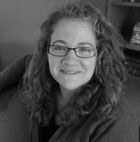 Fall can be a time of big transition in the life of young adults. Some are headed off to college for the first time; others are returning to school and facing newer, bigger academic and social challenges. For recent graduates from high school, college or grad school, fall is often the time when it truly sinks in that student life has ended and life as a young adult navigating the “real world” has begun.
Fall can be a time of big transition in the life of young adults. Some are headed off to college for the first time; others are returning to school and facing newer, bigger academic and social challenges. For recent graduates from high school, college or grad school, fall is often the time when it truly sinks in that student life has ended and life as a young adult navigating the “real world” has begun.
Young adults are sorting out who they are and who they want to be as they enter adult life. They are often navigating major career and educational decisions, figuring out relationships and clarifying their personal and cultural identities.
As a counselor working with young people at Hillel UW, I find that they are also sorting out how to shift their relationship with their parents into a relationship between adults while still maintaining closeness and connection. Based on these conversations, I’d like to share some thoughts on how parents can support their young adult children through this transition.
Become a consultant. Throughout our children’s early development, we play many roles: provider, protector, limit-setter, nurturer and teacher, to name only a few. As our children move into early adulthood the roles begin to shift. It becomes less useful for us to protect our children or to set limits on their behavior, and more useful for us to step into a role of consultant, listener and advisor.
Cultivate a relationship that encourages sharing. Think about the kind of people you reach out to when you’re making a big decision or having a hard time. Do you turn to the people who tell you what they want you to do, or the people who ask questions about what you want for yourself? Do you reach out to people whose anxiety about your well-being overwhelms the conversation, or to those who are relaxed and present? It’s important to be yourself in your relationship with your child, but it’s also possible to cultivate qualities that make you an easy and helpful person to talk to.
Let your young adult make – and learn from – mistakes. I vividly remember being at the airport when I was 23, coming back from a beach trip with a friend. This was in the days of paper tickets, and I had carelessly jammed my travel documents in with my toiletries. Lotion spilled all over my ticket, making it unreadable and unusable. I will never forget the process of locating the correct staff to speak with, explaining the situation, reassuring my friend who was frustrated and anxious and trying to come up with alternative documents. I made the flight, but rest assured that my tickets have never been in jeopardy since. If someone had fixed the situation for me, I wouldn’t have learned from it. If anyone had jumped in with unnecessary lecturing or criticism, I would have been hurt and defensive. As parents, we can have the urge to protect our young adult children from trouble, or to add our own “teachings” when the situation speaks for itself. Try to resist both of these urges, and simply be supportive as your child learns from mistakes.
You can read Part 2 of this post here.
 By Danica Bornstein
By Danica Bornstein
Danica Bornstein, LICSW, is the Clinical Counselor at Hillel UW. The Hillel Counseling Program is a joint project of Hillel UW and Jewish Family Service and provides counseling for Jewish young adults aged 18-32.



